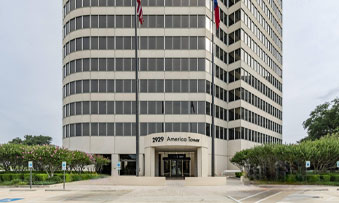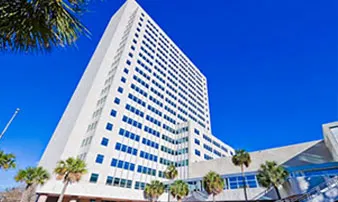Atlanta Traumatic Brain Injury Lawyer
A traumatic brain injury (TBI) is a devastating event that can instantly alter the course of a person’s life. Unlike a broken bone or a visible wound, a TBI is often an invisible injury and its effects can wait to show up later in life. In Georgia, many accidents stemming from various sources unfortunately lead to thousands of these life-changing injuries each year. Understanding the causes, the consequences, and the legal landscape surrounding TBIs is crucial for victims and their families seeking justice and support.
Merritt & Merritt Law Firm has witnessed firsthand the profound impact TBIs have on individuals and their loved ones. We are committed to helping Georgians navigate the difficult path following such an injury, ensuring their rights are protected and they receive the compensation necessary for recovery and long-term care. If you have been in an accident that subsequently caused a TBI, call us today at 404-975-1775 for a free consultation.
What Constitutes a Traumatic Brain Injury?
A TBI occurs when an external force causes damage to the brain. This can happen through:
- A Bump, Blow, or Jolt: Sudden acceleration or deceleration forces, like those experienced in a car crash or a fall, can cause the brain to move violently within the skull. This movement can lead to bruising (contusions), bleeding, and the tearing of delicate nerve fibers (axons), resulting in diffuse axonal injury (DAI). Even without direct impact to the head, the whiplash effect can be sufficient to cause a TBI.
- Penetrating Injury: An object piercing the skull and entering brain tissue, such as from a gunshot wound or debris in a severe accident, causes direct localized damage.
TBIs are generally classified by severity:
- Mild TBI (Concussion): Characterized by a brief change in mental status or consciousness. Despite the “mild” label, concussions can have significant and lingering effects, including headaches, difficulty concentrating, memory problems, sensitivity to light or sound, irritability, and sleep disturbances. Repeated concussions can lead to chronic neurological issues.
- Moderate TBI: Involves a loss of consciousness lasting from minutes to hours, confusion lasting days to weeks, and physical, cognitive, or behavioral impairments lasting months or potentially permanently.
- Severe TBI: Results from extensive brain damage, often causing prolonged unconsciousness (coma) or amnesia. These injuries frequently lead to permanent, life-altering disabilities affecting movement, speech, thinking, and emotional regulation, often requiring lifelong care.
Symptoms can be wide-ranging and may not appear immediately. They fall into several categories:
- Physical: Headaches, dizziness, fatigue, nausea/vomiting, blurred vision, ringing in the ears (tinnitus), loss of coordination, seizures, slurred speech, weakness/numbness in limbs.
- Cognitive: Difficulty thinking clearly, concentrating, or remembering new information; slowed processing speed; confusion; problems with planning and organization.
- Emotional/Behavioral: Irritability, anxiety, depression, mood swings, personality changes, agitation, difficulty controlling emotions, social inappropriateness.
Common Causes of TBIs in Georgia Accidents
While a TBI can result from numerous scenarios, certain types of accidents are more prevalent causes in Georgia:
- Motor Vehicle Accidents: Collisions involving cars, trucks, motorcycles, bicycles, and pedestrians are a leading cause of TBIs across all severity levels. The immense forces involved in crashes – impact, sudden stops, rollovers – frequently lead to head trauma, even when occupants wear seatbelts or helmets. Truck accidents, due to the size and weight disparity, often result in particularly severe TBIs for occupants of smaller vehicles. Motorcycle riders are especially vulnerable.
- Falls: According to the CDC and Georgia-specific data, falls are a primary cause of TBI-related emergency room visits and hospitalizations, particularly for the very young and older adults (65+). Falls can happen anywhere: down stairs, slipping on wet floors in stores or homes, from ladders at work sites, or in nursing homes due to inadequate supervision or hazardous conditions.
- Workplace Accidents: Industries like construction, manufacturing, and transportation carry inherent risks. Falls from heights, being struck by falling objects, machinery malfunctions, and vehicle accidents on job sites can all lead to significant head injuries.
- Sports and Recreational Injuries: Contact sports like football, boxing, and hockey are well-known for concussion risks. However, TBIs can also occur in activities like soccer, baseball, lacrosse, skateboarding, gymnastics, diving, and horseback riding from impacts, falls, or collisions. Defective protective gear can also contribute.
- Acts of Violence: Assaults involving blows to the head, gunshot wounds, domestic violence, and child abuse (including Shaken Baby Syndrome) are tragic causes of severe TBIs.
Traumatic Brain Injury Statistics in Georgia
The impact of TBIs in Georgia is significant and measurable:
- Incidence: According to the Georgia Department of Public Health, the Georgia Brain and Spinal Injury Registry recorded 29,924 TBI injuries in 2019. This included 21,026 emergency department visits and 8,081 hospital admissions specifically for TBI.
- Earlier Estimates: A multistate survey estimated that around 81,000 fatal and non-fatal TBIs occurred annually in Georgia based on 2014 data, translating to a rate of approximately 742.4 TBIs per 100,000 residents. That study broke down the 2014 numbers as roughly 71,730 ER visits, 7,388 hospitalizations, and 1,899 TBI-related deaths in the state.
- Cost: The Brain and Spinal Injury Trust Fund Commission estimated that TBIs cost Georgians over $1.5 billion annually in medical expenses and lost productivity.
- Age Demographics: Data from 2019 indicated that TBIs occurred most frequently among Georgians from birth to age 39, with the largest single group being those aged 10-19, accounting for nearly 24% of registered brain and spinal cord injuries that year. Falls remain a major cause for the elderly.
- National Context: Nationally, the CDC reported nearly 70,000 TBI-related deaths in 2021, with falls and suicides being major contributors, and disproportionate rates among older adults and certain minority groups.
Georgia Law and TBI Claims
When a TBI results from an accident caused by someone else’s carelessness or wrongdoing, Georgia law allows the injured party to seek compensation through a personal injury claim. Most TBI claims are based on the legal principle of negligence. To succeed, the injured person (plaintiff) must prove four elements:
- Duty: The person who caused the accident owed a duty of care.
- Breach: That person failed that duty.
- Causation: The failure of duty caused the accident that directly caused the injuries you are suffering
- Damages: There are real harms that were done to you due to the accident
Two critical aspects of Georgia law significantly impact TBI claims:
- Statute of Limitations (O.C.G.A. § 9-3-33): In Georgia, there is a strict time limit for filing a personal injury lawsuit. Generally, an action for injuries to the person must be brought within two years from the date the injury occurred or was discovered. Missing this deadline typically means losing the right to sue for damages forever. There are limited exceptions, making it vital to consult with an Atlanta traumatic brain injury lawyer promptly to see where your case falls in the statute.
- Modified Comparative Negligence (O.C.G.A. § 51-12-33): Georgia follows a “modified comparative fault” rule. This means an injured person can still recover damages even if they were partially at fault for the accident, as long as their percentage of fault is less than 50%. However, the amount of compensation they receive will be reduced proportionally to their degree of fault. For example, if a jury finds the injured person 20% at fault and awards $100,000 in damages, the plaintiff will receive $80,000 ($100,000 minus 20%). If the plaintiff is found 50% or more at fault, they are barred from recovering any damages.
Our Atlanta Traumatic Brain Injury Lawyer Explains the Damages You Can Recover After an TBI
The goal of a personal injury lawsuit is to compensate the victim for all losses stemming from the TBI so that they are made “whole”, or they are at or close to the person they were before the accident.
Economic Damages: These are tangible financial losses with specific monetary values.
- Medical Expenses: All past, current, and future costs for treatment, including ER visits, hospital stays, surgeries, medications, rehabilitation (physical, occupational, speech therapy), assistive devices, counseling, and long-term care needs.
- Lost Wages: Income lost due to time off work during recovery.
- Loss of Earning Capacity: Compensation for diminished ability to earn income in the future due to permanent impairments from the TBI.
- Other Out-of-Pocket Costs: Transportation to medical appointments, home modifications, etc.
Non-Economic Damages: These compensate for intangible, subjective losses that significantly impact quality of life.
- Pain and Suffering: Physical pain and emotional distress caused by the injury and its effects.
- Mental Anguish: Compensation for anxiety, depression, fear, grief, or psychological trauma.
- Loss of Enjoyment of Life: Inability to participate in hobbies, activities, and relationships as before the injury.
- Loss of Consortium: Compensation for the negative impact on the victim’s relationship with their spouse.
Punitive Damages: In rare cases involving particularly reckless, willful, or malicious conduct by the defendant (like drunk driving), punitive damages may be awarded. These are intended to punish the wrongdoer and deter similar conduct, not merely compensate the victim..
The Unique Challenges of TBI Cases
Traumatic brain injury claims present unique hurdles:
- The “Invisible” Injury: Unlike orthopedic injuries, TBIs often lack obvious outward signs. Proving the existence and extent of the brain injury often relies heavily on diagnostic imaging (which may appear normal in mild TBIs), neuropsychological testing, and expert medical testimony.
- Delayed Onset/Evolving Symptoms: Symptoms may not fully manifest until days, weeks, or even months after the initial accident, making it harder to definitively link the TBI to the event. Symptoms can also change or worsen over time.
- Causation Disputes: Insurance companies may argue the TBI was pre-existing or caused by something other than the accident in question.
- Quantifying Long-Term Needs: Accurately projecting the lifelong costs associated with severe TBIs, including potential assisted living, therapies, and lost opportunities, requires specialized expertise.
- Insurance Company Tactics: Insurers often try to minimize payouts by downplaying the severity of the TBI (especially concussions), disputing causation, or making lowball settlement offers before the full extent of the injury is known.
TBI? Speak with an Atlanta Traumatic Brain Injury Lawyer in a Free Consultation Today
Navigating the aftermath of a TBI-causing accident is overwhelming. Trying to handle complex legal and insurance issues while dealing with recovery is incredibly difficult. This is where experienced legal representation becomes invaluable. Dealing with a TBI is a marathon, not a sprint. Having a dedicated legal team by your side allows you and your family to focus on healing. If you or a loved one has suffered a traumatic brain injury in an accident in Georgia, don’t face the challenge alone. Contact an Atlanta traumatic brain injury lawyer today for a free consultation to discuss your rights and options. Call us at 404-975-1775.






